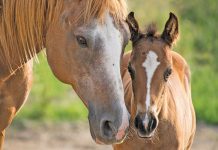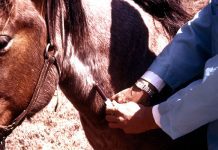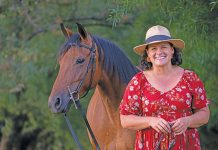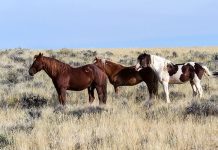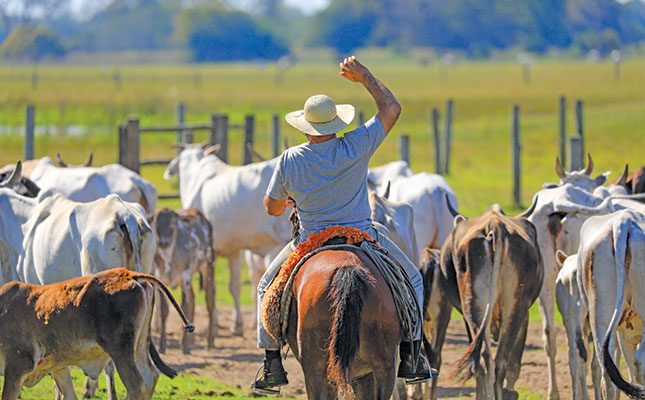
Photo: Pxhere
Before mechanisation became a mainstay of modern agriculture, animals, such as oxen and horses, were used for transportation and ploughing. Since the introduction of tractors and other machinery and vehicles, however, draught animals have become almost obsolete in some parts of the world. But in many countries in Africa, and elsewhere, horses and donkeys still play a crucial role in agriculture.
According to Prof Alan Guthrie, director of the University of Pretoria’s Equine Research Centre, there are at least 112 million domesticated equids in the world, consisting of around 60 million horses, 42 million donkeys and 10 million mules. The vast majority of these are working animals. Guthrie says that about 13 million donkeys live in Africa alone.
In many countries, equids are still involved in ploughing, tilling, weeding and transporting inputs, harvests and families.
Research also points to the value of horses on modern farms. Indeed, some researchers believe that as the world continues to go green, horses, donkeys and mules may become ever more important, even on large commercial farms.
Workforce
In the past, before the invention of the combustion engine, horses and donkeys were, of course, used as the workforce on a farm.
In an article in Mountain Xpress, Buster Norton, a maize, tobacco and sorghum producer in north-west Carolina in the US, says that despite owning five tractors, he often uses horses to perform certain tasks more rapidly.
“There’s a few jobs they excel in, such as getting wood off these rough hills or ploughing on steep land where the tractors can’t [get to].”
They also provide a quick and largely cheap way for farmers to get around their farms quickly. Bakkies, for example, require fuel and are more or less restricted to roads. On horseback, farmers and farmworkers can cut through fields, and, obviously, no fuel is required.
Horses can also be used for herding sheep and other animals, while donkeys have been known to scare off predators. “The donkey’s natural herding instinct means that, if properly bonded to the sheep, it will stay with the [flock] most of the time.
“The donkey’s herding instinct combined with its inherent dislike and aggressiveness towards coyotes and dogs can make it an effective livestock guard animal, if managed properly,” Ontario.ca reports.
Horses also provide valuable fertiliser that can be used to improve soil quality
and yields. With fertiliser prices having skyrocketed over the past two years, animal manure has become more important.
The manure produced by equids is also environmentally friendly. Any excess manure can be sold to neighbouring farmers or agricultural companies.
“Fertilisers made from horse manure have a lot of wonderful benefits,” states the Middleton Place Equestrian Center. “It’s made to prevent air and water pollution and can be used in fields close to water sources or in areas that have large amounts of run-off from fields into streams.
“It also improves soil quality and productivity. It increases the number of nutrients in the soil, keeping it healthier and creating a better ecosystem for plants to grow in.
“Higher productivity leads to more growth of grass and vegetation, which prevents erosion and prevents the growth of brush. Without this brush, the chances of wildfires spreading or happening decreases dramatically.”
The centre adds that horses help preserve grasslands in a rotational grazing system.
“If a farmer practises rotational grazing, this prevents overgrazing and promotes grass to keep growing. With grass still in the grazing fields from rotational grazing, this also prevents erosion and promotes healthy growth of vegetation in these fields for years to come. Rotational grazing also allows manure to decompose.
“Other forms of grasslands like pastures, farms, trails, and other green spaces that horses call home are also home to a lot of other wildlife.
“Keeping these spaces healthy and safe for horses provides a healthy and safe home for other animals and vegetation. Habitats of many animals are maintained through horses’ grazing patterns.
“Tall grasses and plants left uneaten by a horse hide and protect larger animals, whereas shorter grasses eaten by horses protect smaller animals who need this grass to hide from predators. A well cared for pasture can retain at least 70% ground cover all year, unlike cropland.
“Rotating these lands and keeping them well cared for protects not only your horses but also your farm’s well-being, and the ecosystem around it.”
Additional income
With farmers’ profit margins shrinking as input costs increase, horses can actually offer income generation opportunities. Equine agritourism, for example, is becoming more and more popular. According to the Agricultural Marketing Resource Center (AMRC) in the US, equine agritourism consists of horse camps, trail rides, riding lessons, boarding facilities, reproduction facilities, such as stud services, or horse racing. Of course, says the AMRC, not all these activities will be applicable to all farmers, but horse camps and trail rides can be managed by farmers who already have working horses on their farms.
There is a caveat: a general knowledge of horses and a desire to engage with customers are absolute requirements, says the AMRC.
“In order to successfully have an equine tourism business, one needs to have a broad range of knowledge of horses, guests, employees, equipment, tack, facilities and business issues.
“With any type of tourism, you will be working with the public and people from the community. Having great customer service and the ability to work with others will help your business grow. If you will be needing to hire staff, decide who that will be and what type of person you are looking for.”
In this regard, equine agritourism may not be an option for everyone, particularly farmers who do not have the time or patience to engage with the general public.
Breeding
Horse breeding can be a profitable business, particularly for breeds that are in high demand. Horses can also be trained for racing or other competitive events, which can generate significant income. Of course, breeding horses requires a skill set in and of itself, and may require investment in particular genetics.
However, breeding good-quality draught horses for neighbours or other farmers may provide some additional income. Not all breeding has to be related to equine sporting disciplines, which may require large capital investments.
In summary, horses can add value to a farm operation in a variety of ways, from serving as a workforce to generating income through recreational activities, therapy services, breeding, or conservation efforts.
Sources: ‘Equine Agritourism’; ‘How horses help the environment’;
‘Horse power: Using draft animals in the 21st century’;
‘Guidelines for using donkeys as guard animals with sheep’


